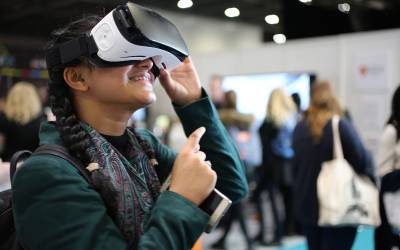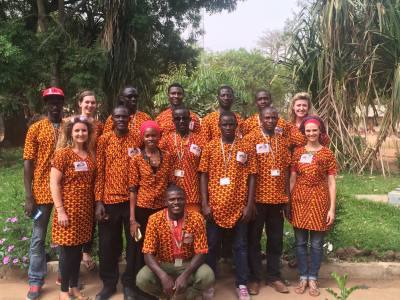Medical Physics and Biomedical Engineering are fascinating disciplines which transform lives.
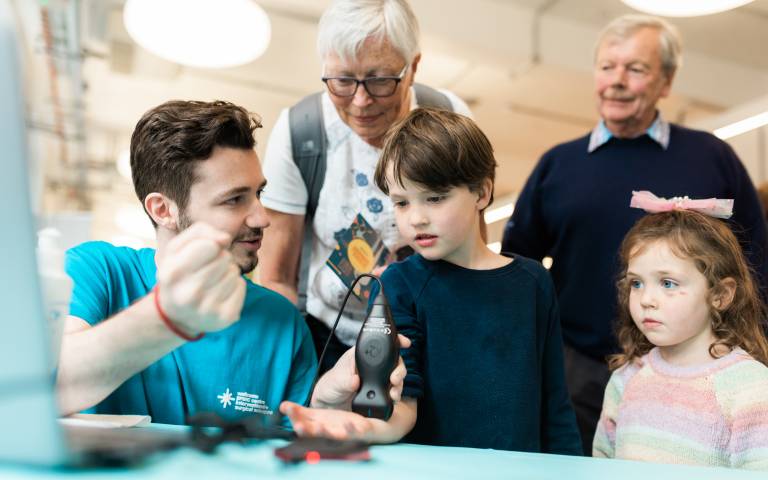
Our staff are passionate about promoting and explaining what we do to external audiences, and the department has an extensive public engagement programme, which includes school visits, tours of the department, engagement with events such as the Big Bang Fair, International Women in Engineering Day and initiatives such as The Brilliant Club, Pint of Science and Inspire!
We are committed to inspiring the next generation of medical physicists and biomedical engineers, and promoting the study and career opportunities we offer to as diverse a community of potential students as possible.
Examples of our public engagement
2021-22
- The Science of Surgery
- On Tuesday 31st May 2022, WEISS threw open its doors to the public for The Science of Surgery. It was the first event of its kind since the COVID-19 pandemic struck, with 70 researchers eager to share their work and passion through a series of interactive activities and games.
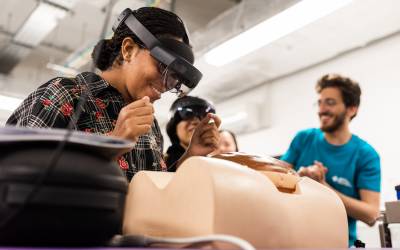
The team built upon the success of the first Science of Surgery held in April 2019; utilising the excellent activities developed by our researchers and introducing some new games and demonstrations to communicate the innovative science and technology being developed at WEISS.
These activities included mazes based on networks of blood vessels, levitation using soundwaves, a fun simulation of the challenges of keyhole surgery and challenging AI algorithms used in medical diagnosis to see who is best at Where’s Wally.
Meanwhile, those taking part in timed tours of the basement could drive a real Da Vinci surgical robot and try on the HoloLens to see how augmented virtual reality is improving surgical training and visualisation.
Almost 200 visitors joined us, with many groups and families staying throughout the entire session. Their enthusiasm and enjoyment was palpable and evidenced in their feedback. As one visitor said “The level of engagement was beyond brilliant! THANK YOU. We need more of this kind of thing”.
"There is probably nothing more fulfilling for researchers than sharing our passion and love for science with others. Particularly, with young and curious brains of our youngest audience! The Science of Surgery, organised by WEISS, was a fantastic event, where we could connect, in-person, with the public. The Radiotherapy Image Computing Group used the opportunity to meet and encourage children to become a new generation of Radiotherapy Experts! Thank you all for that amazing event!"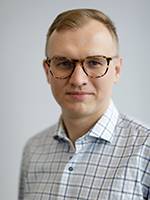
Dr Adam Szmul, Research Fellow, Radiotherapy Imaging Computing Research Group
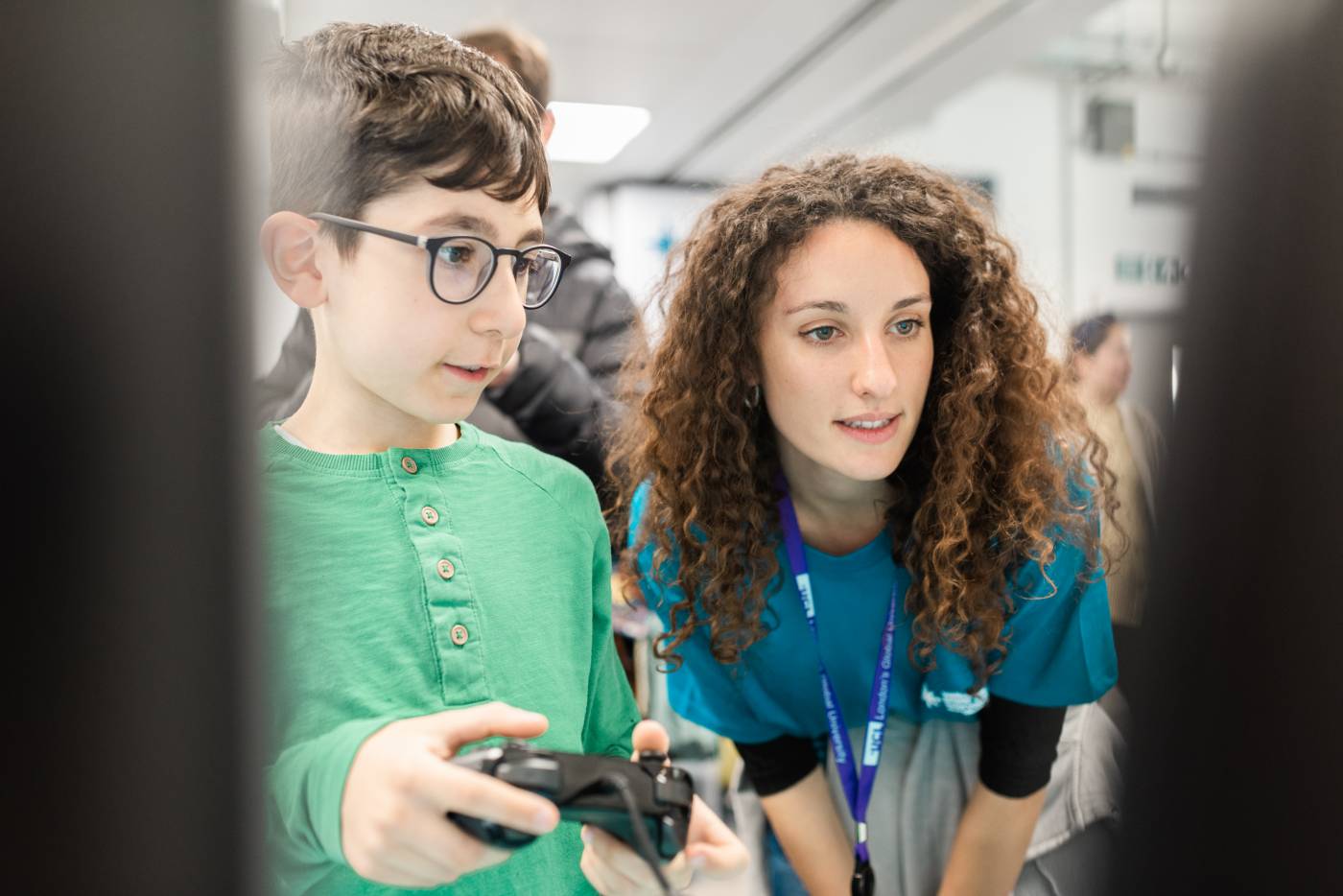

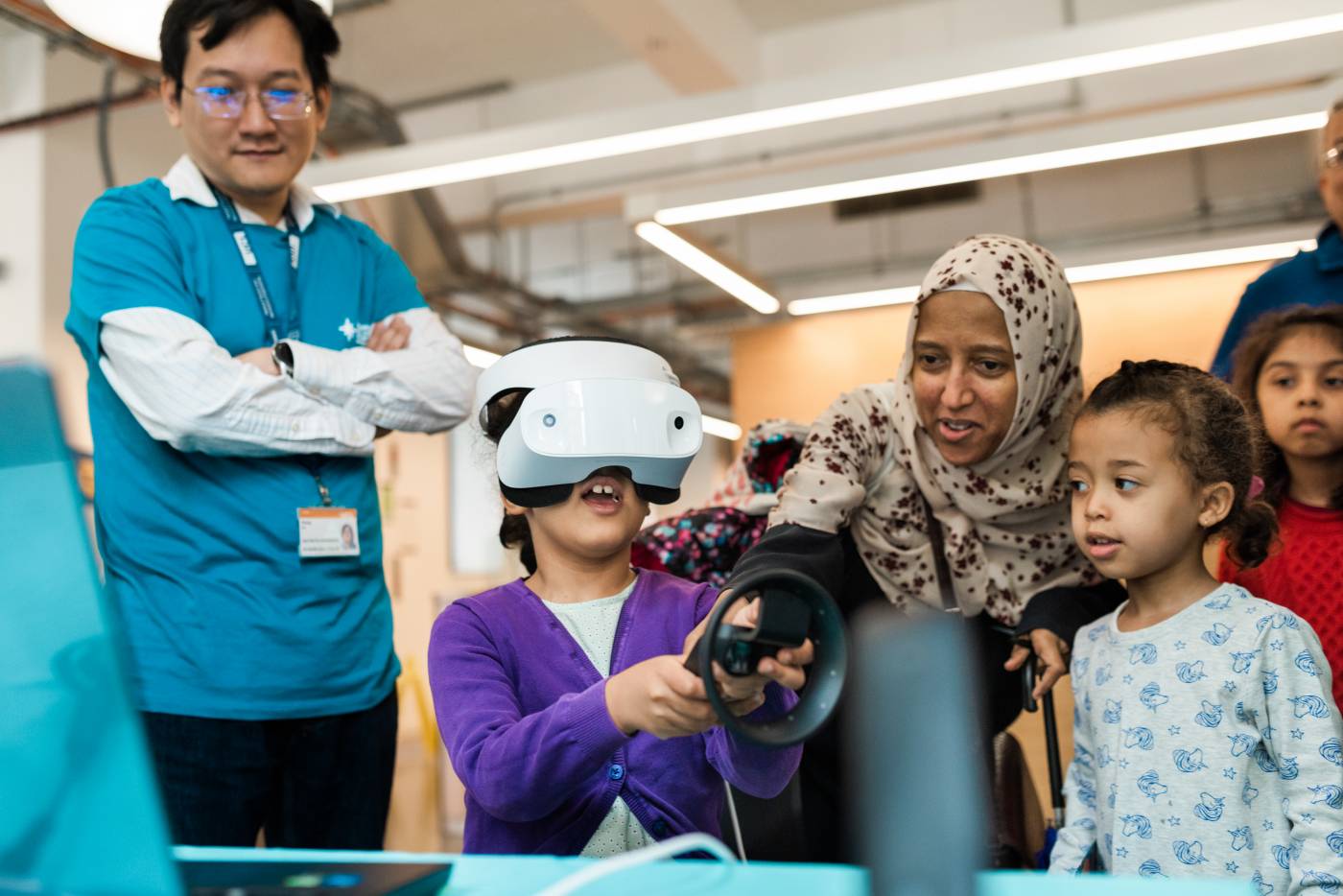
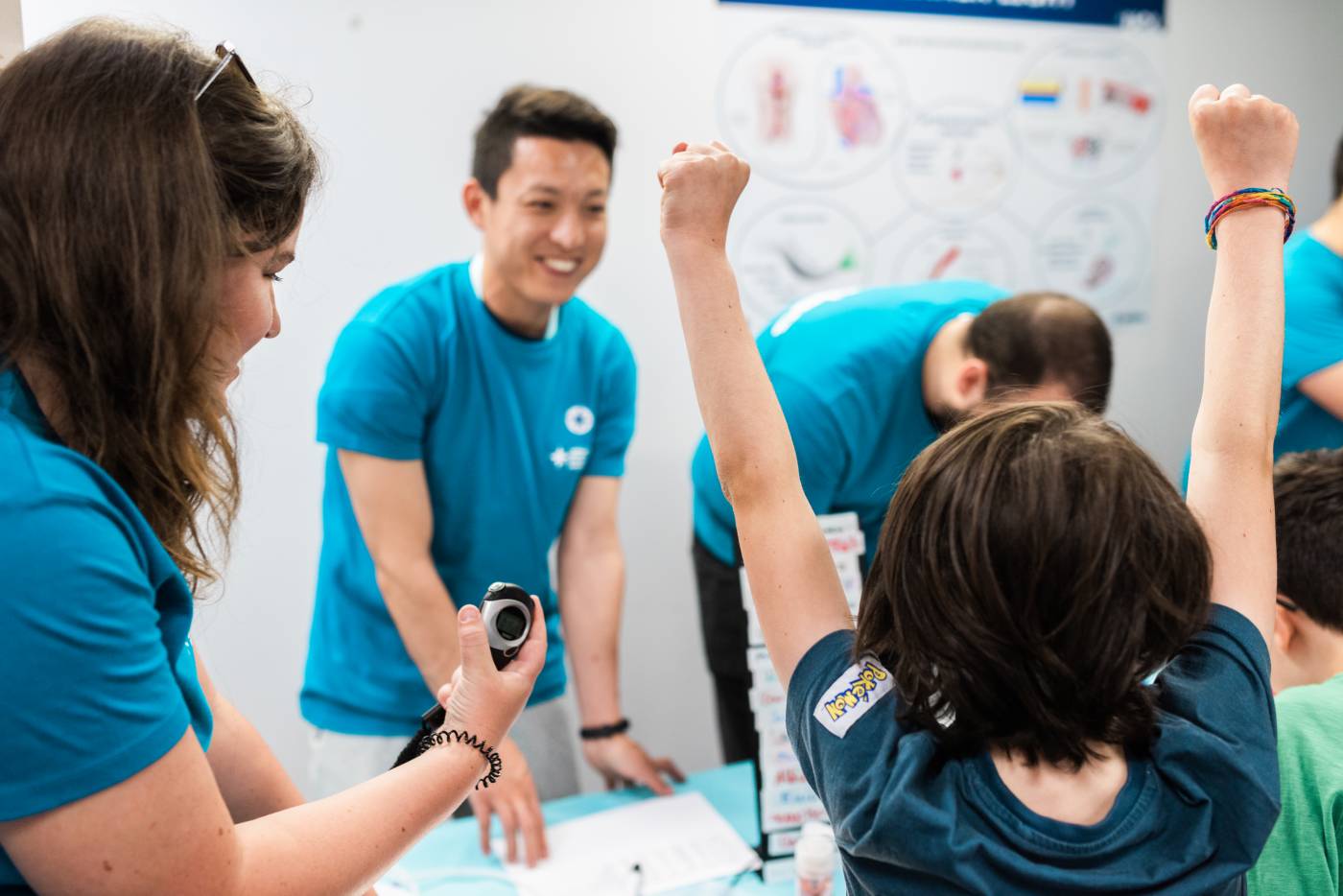
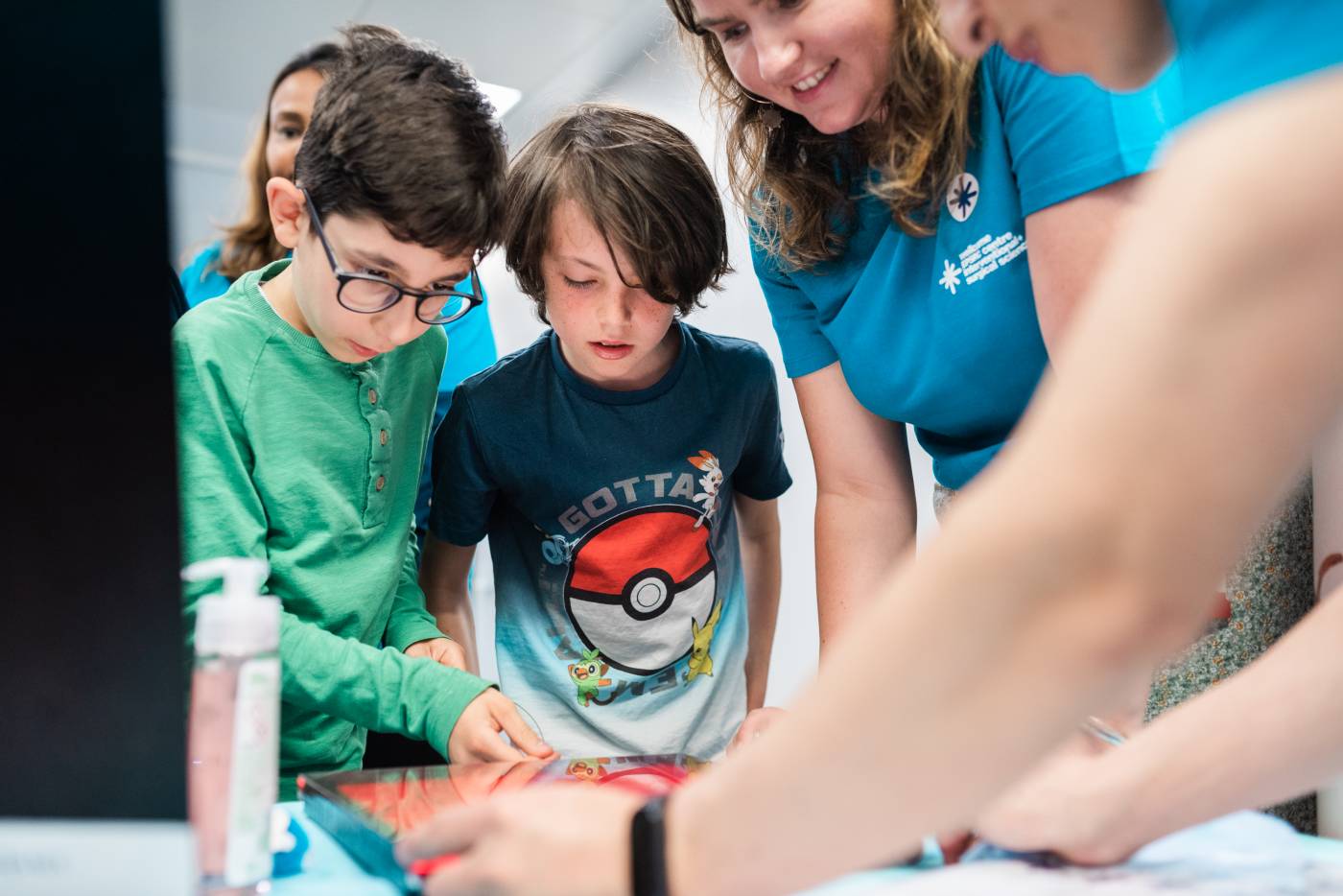
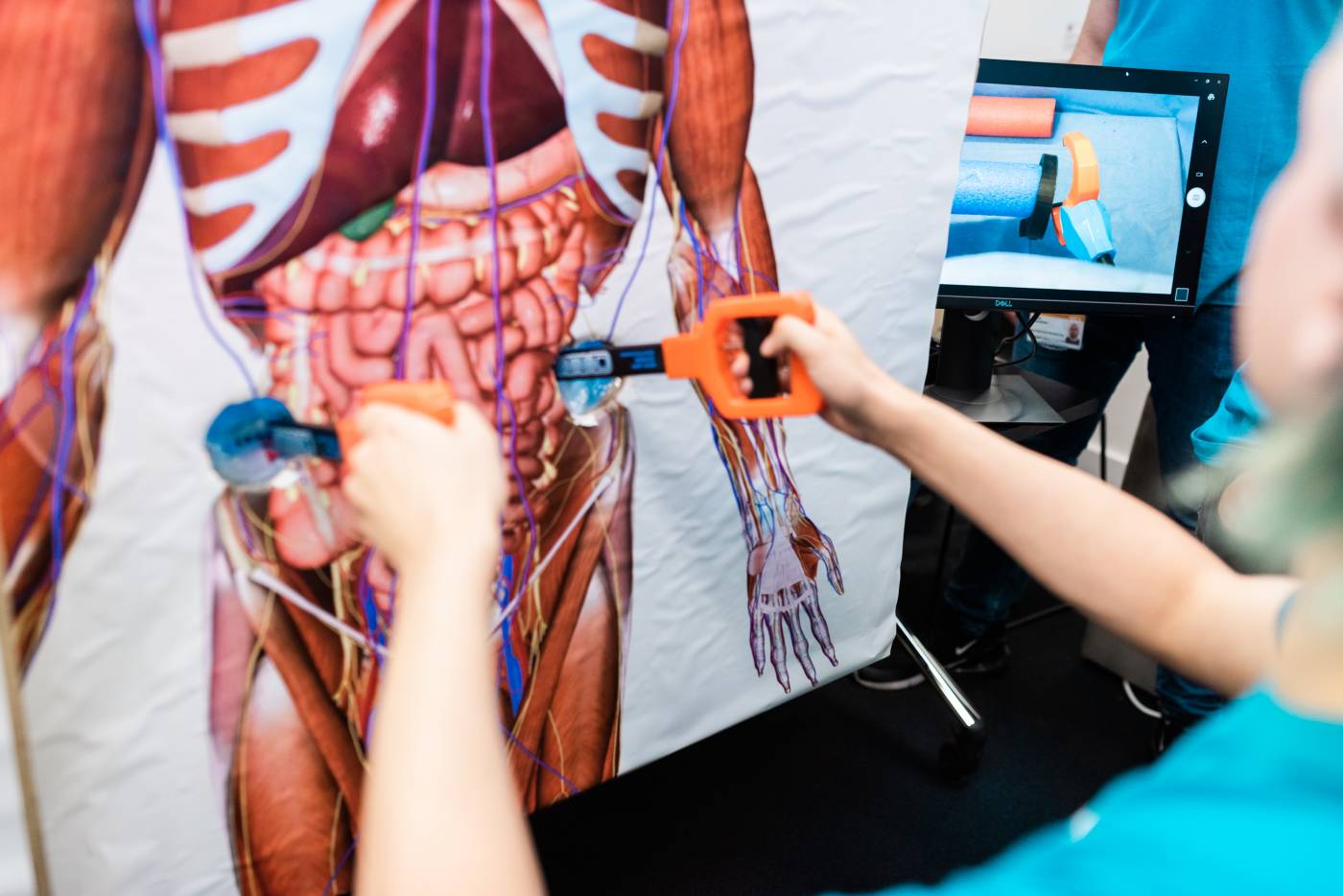
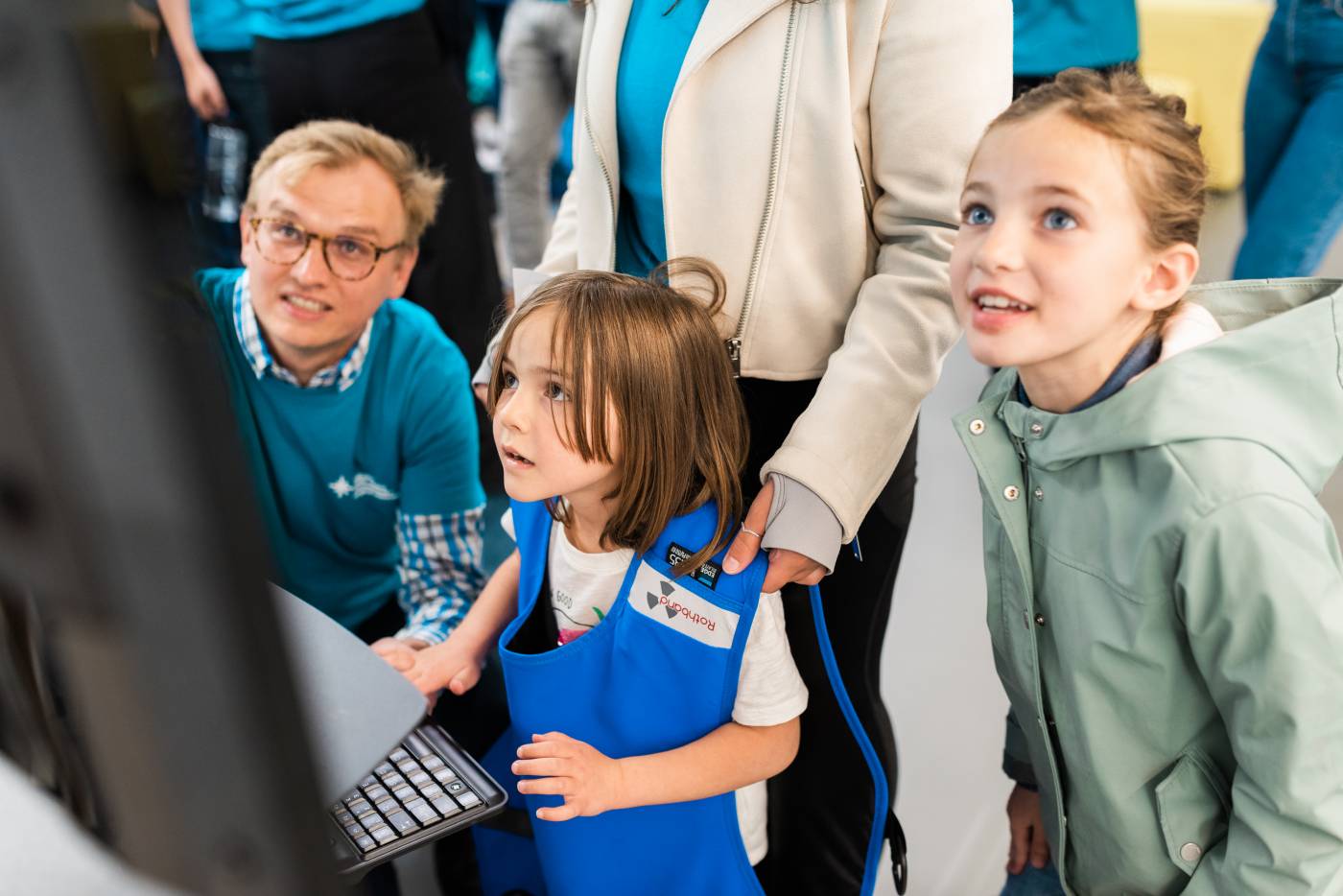

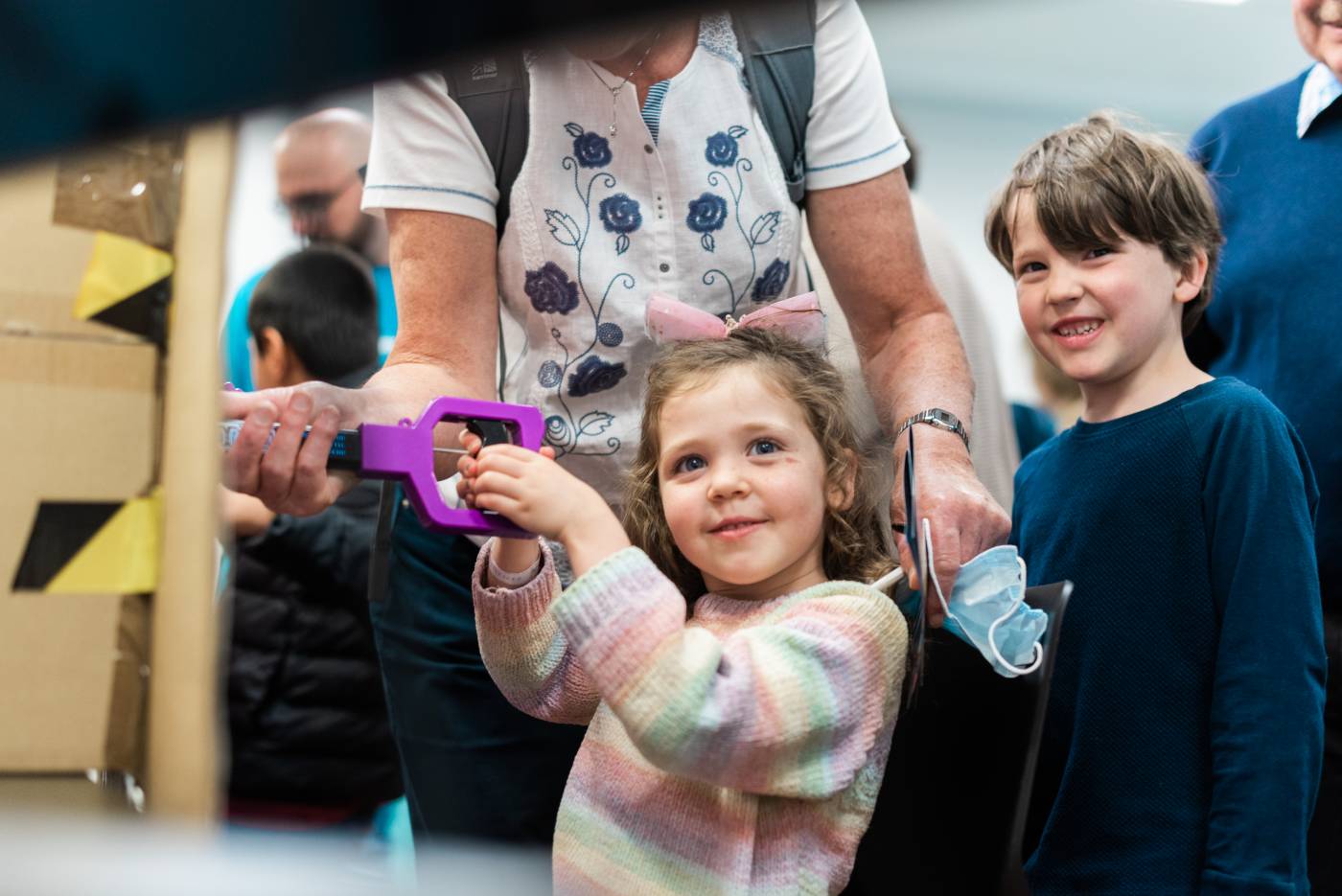

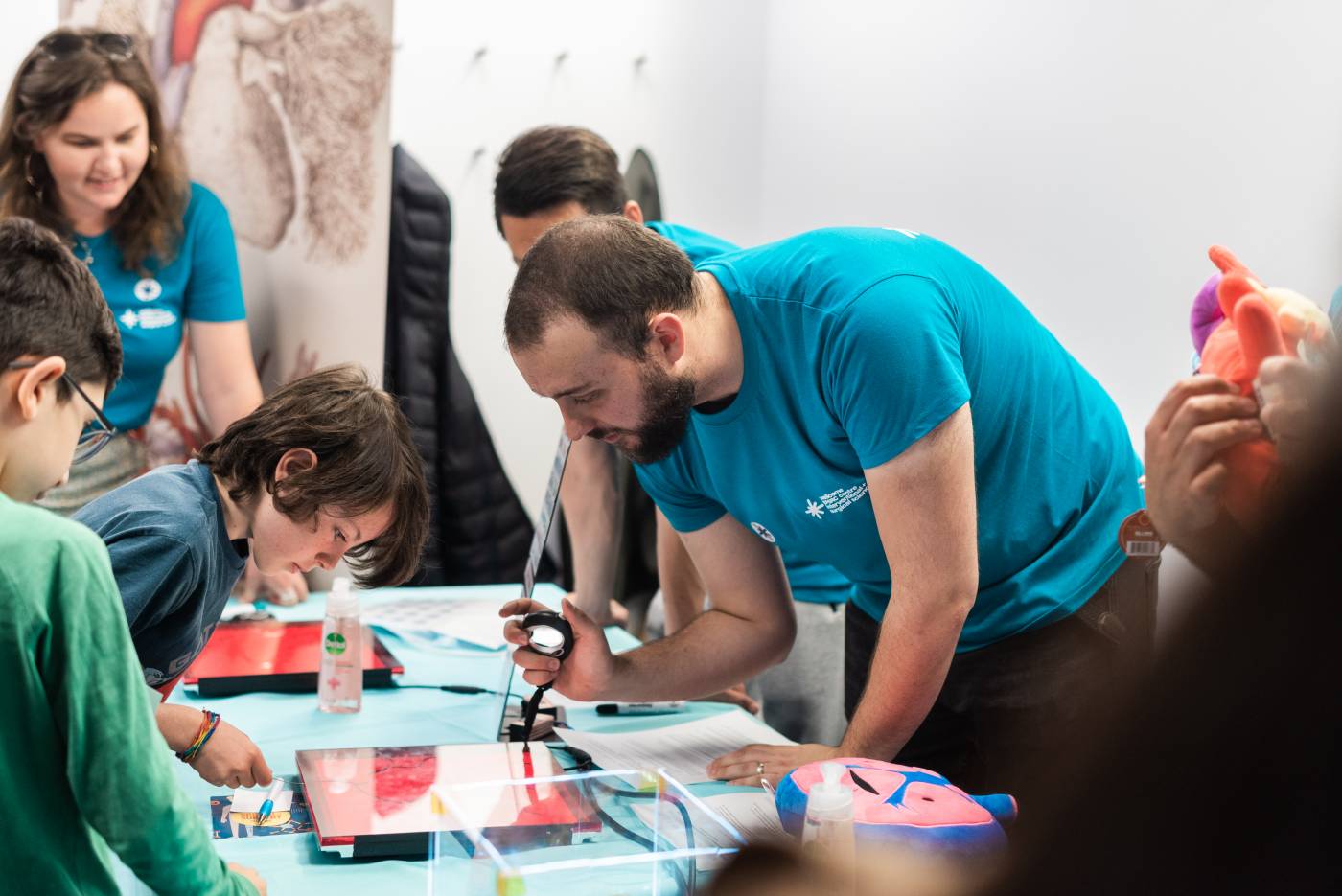
- Spring into STEM
- Spring into STEM is an annual series of mini-lectures showcasing the world leading research taking place across UCL Engineering. This year, we were excited to host six lectures and share our passion for STEM and the cutting-edge research carried out by MPBE researchers.
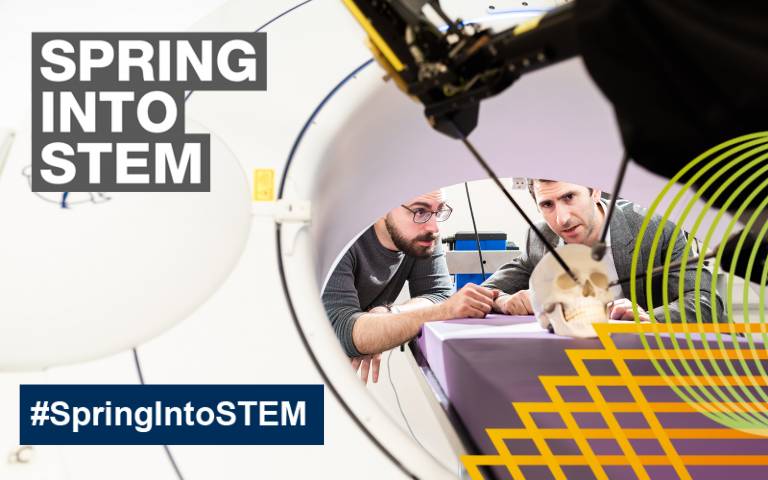
This year’s lectures included:
- Ileana Silvestre Patallo - Supporting preclinical irradiation research with an End-to-End test for dosimetry verification
- Oriol Roche I Morgo and Carlos Navarrete Leon - Next generation X-ray vision: the advent of multi-contrast x-ray imaging techniques
- Dr Liam Collins-Jones - What are babies thinking?
- Dr Adam Szmul - Artificial Intelligence to Improve Proton Beam Therapy Delivery in Children with Cancer
- Dr Anita Karsa - How the many faces of MRI help tackle Alzheimer’s disease
- Dr Patrick Fuchs - What are brains made of?
Across our online lectures, we saw over 200 attendees which included members of the public, prospective students, clinicians, researchers and UCL staff with each lecture ending with lively discussion between the hosts and attendees. Many thanks to all of the MPBE contributors who made the series such a success!
Spring into STEM is an annual series of mini-lectures showcasing the world leading research taking place across UCL Engineering. This year, we were excited to host six lectures and share our passion for STEM and the cutting-edge research carried out by MPBE researchers.
- Pint of Science
The international science festival Pint of Science was back in May 2022 after a COVID-induced hiatus and we were delighted that MPBE, WEISS and CMIC researchers were invited to speak and share their research in a fun and informal setting. This year’s event took place on the Battersea Barge where we had 3 nights of deep discussion and fun learning:
- Our Body and Mind: Focusing on the 3Rs to replace, reduce & refine animal research
- DeTechtives: How Tech is Providing Better Insight
- A Brighter Future: How Tech is Changing the World for the Better
As well as showcasing our world-leading research, MPBE team members also helped organise the event, a huge thank you to Simon Watt, Georgina Cade, Thomas Niederhoffer and the rest of the team for organising and hosting!
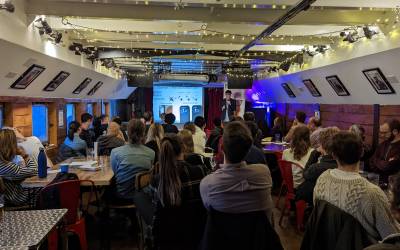
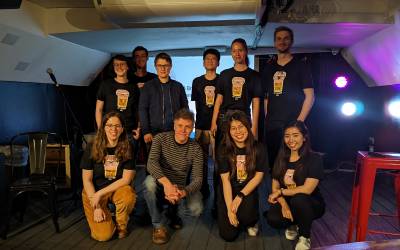
- Bloomsbury Festival
For the Radio Therapy Image Computing Group (RTIC) the 2021 Bloomsbury Festival was a wonderful opportunity to meaningfully engage with the public and share their enthusiasm for research. The diversity of attendees at the event meant that they could gain a better understanding of how the public perceives radiotherapy, what their main concerns and misconceptions are and how researchers can help broaden their knowledge and get them excited about scientific progress in healthcare technology.
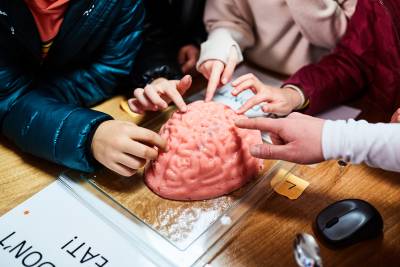
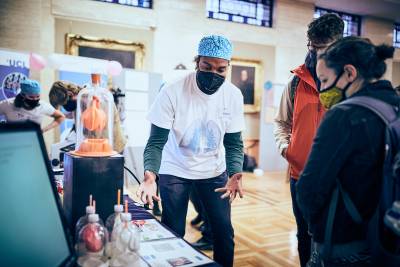
- In2ScienceUK
YouTube Widget Placeholderhttps://youtu.be/cl14BvBJo-g In August the department hosted 2 placements for young people from disadvantaged backgrounds through In2ScienceUK. By sharing our passion for Medical Physics and Biomedical Engineering we hope to inspire and support our placement students to follow a career in science, technology, engineering and maths (STEM).The first set of year 12 students were hosted by Dr Henry Lancashire and had hands-on experience of science across the department from surgical simulations to ultrasound phantoms. The week at UCL helped students feel they could belong in science and research by breaking down stereotypes of scientists and scientific careers.
The second set of students were hosted by Dr Liam Collins-Jones and they observed the breadth of work carried out in the Diffuse Optical Tomography in the Human Brain (DOT-HUB) research group. At the start of the week, they spent time discussing the underpinning theories behind medical imaging and conducting phantom data collection. This fantastically complemented the more applied practical activities. Dr Ernesto Vidal conducted a brain imaging experiment, with Liam as the subject, for the students to observe. Further experiments followed, including a demonstration of a new imaging technique, and Danica Pacis conducted bench-top experiments, displaying the variety of work we do in DOT-HUB and the MPBE department.
Liam was keen for the students to see the multi-disciplinary nature of working in the brain imaging research field, and so he took the students to the labs of DOT-HUB collaborators at the Birkbeck Centre of Cognitive and Brain Development. Here, the researchers conducted a demonstration of the motion sensing and virtual reality environment that’s used to illicit naturalistic brain responses in toddlers; this was fantastic to show the intersection between engineering and psychology.
Throughout the week, the students met with several other members of DOT-HUB, from PhD students to professors, to understand their motivations for going into their career and to understand more about the academic career ark. The students particularly appreciated meeting with Dr Rob Cooper and Prof Jem Hebden, who both imparted fascinating reflections from their motivations and careers.
The guidance from In2Science was to give the students a realistic view of what it is like to work in STEM. In their feedback, the students said they felt they had gained an in-depth insight into working in physics and engineering, and really appreciated the opportunity to meet physicists and engineers in-person and ask questions.
We look forward to hosting more students next year and encourage everyone across the department to get involved.
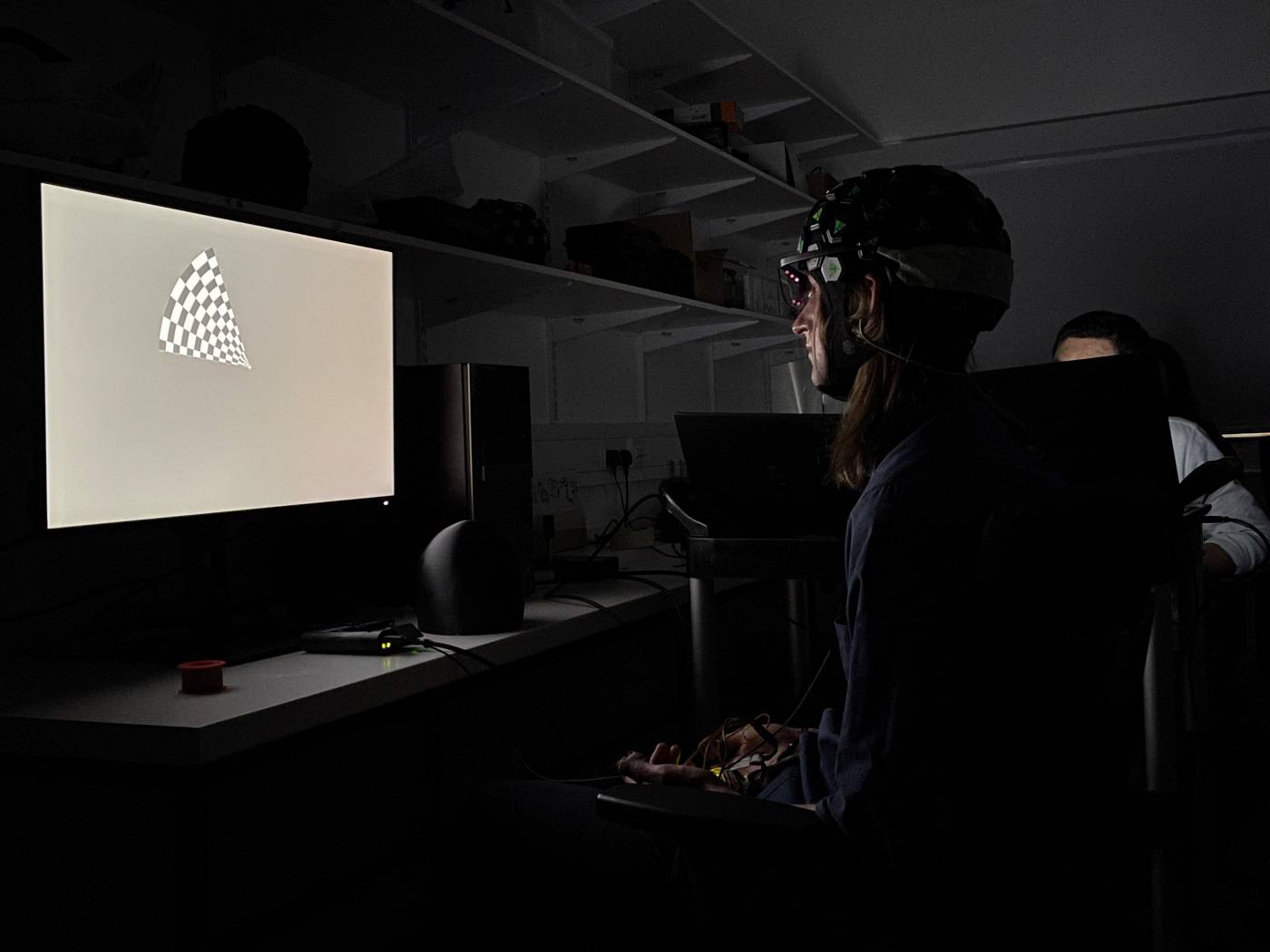
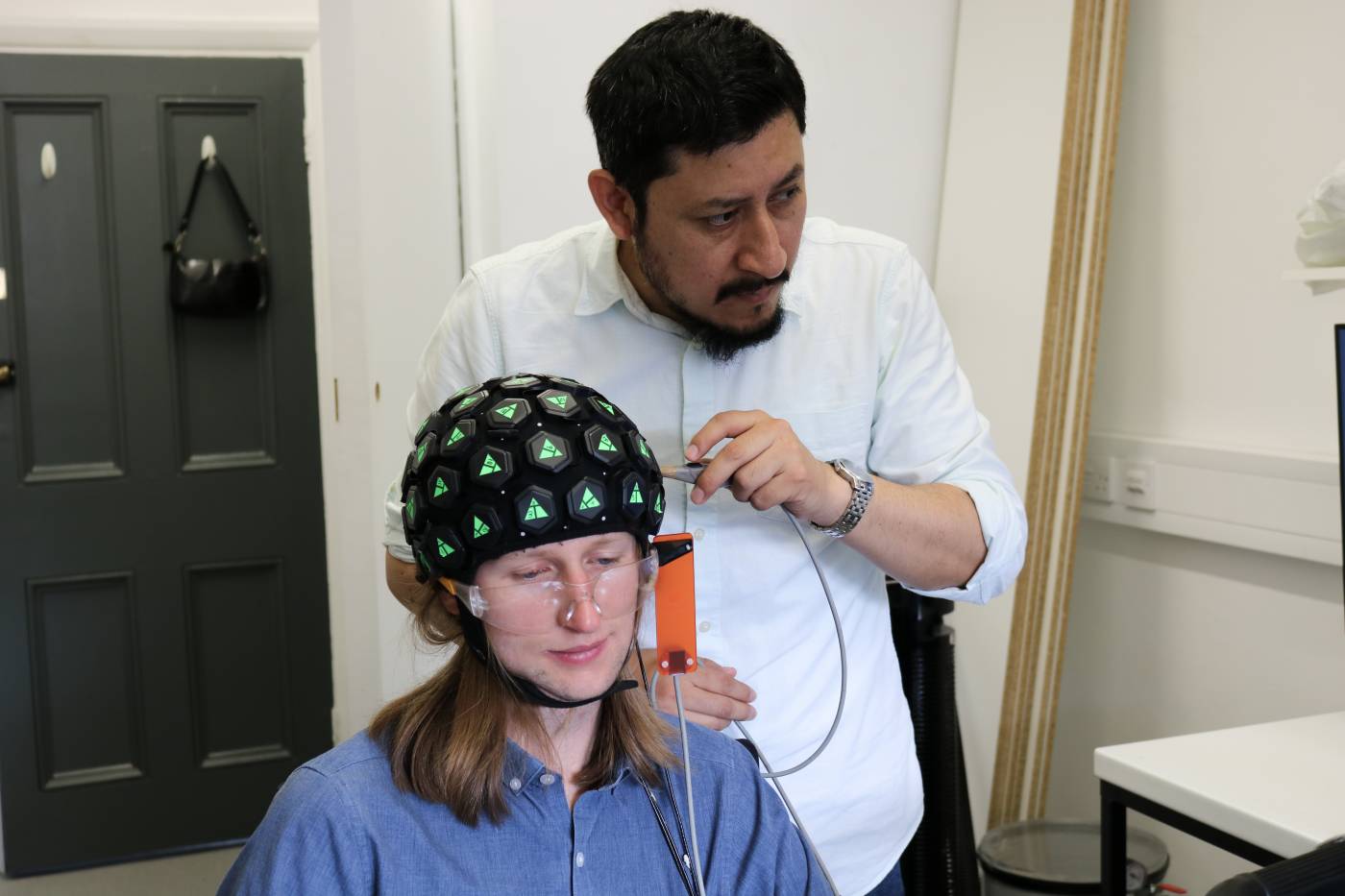

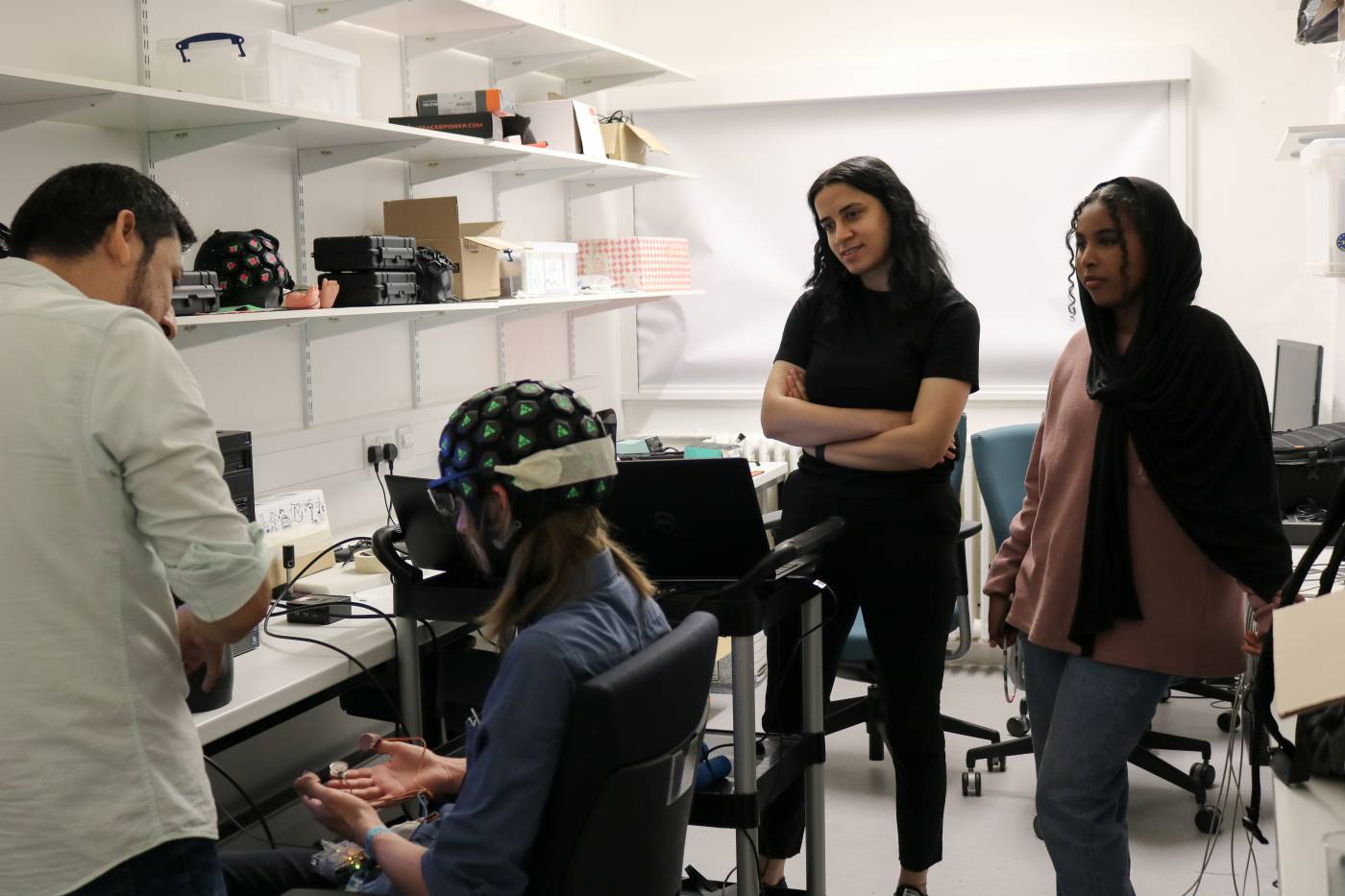




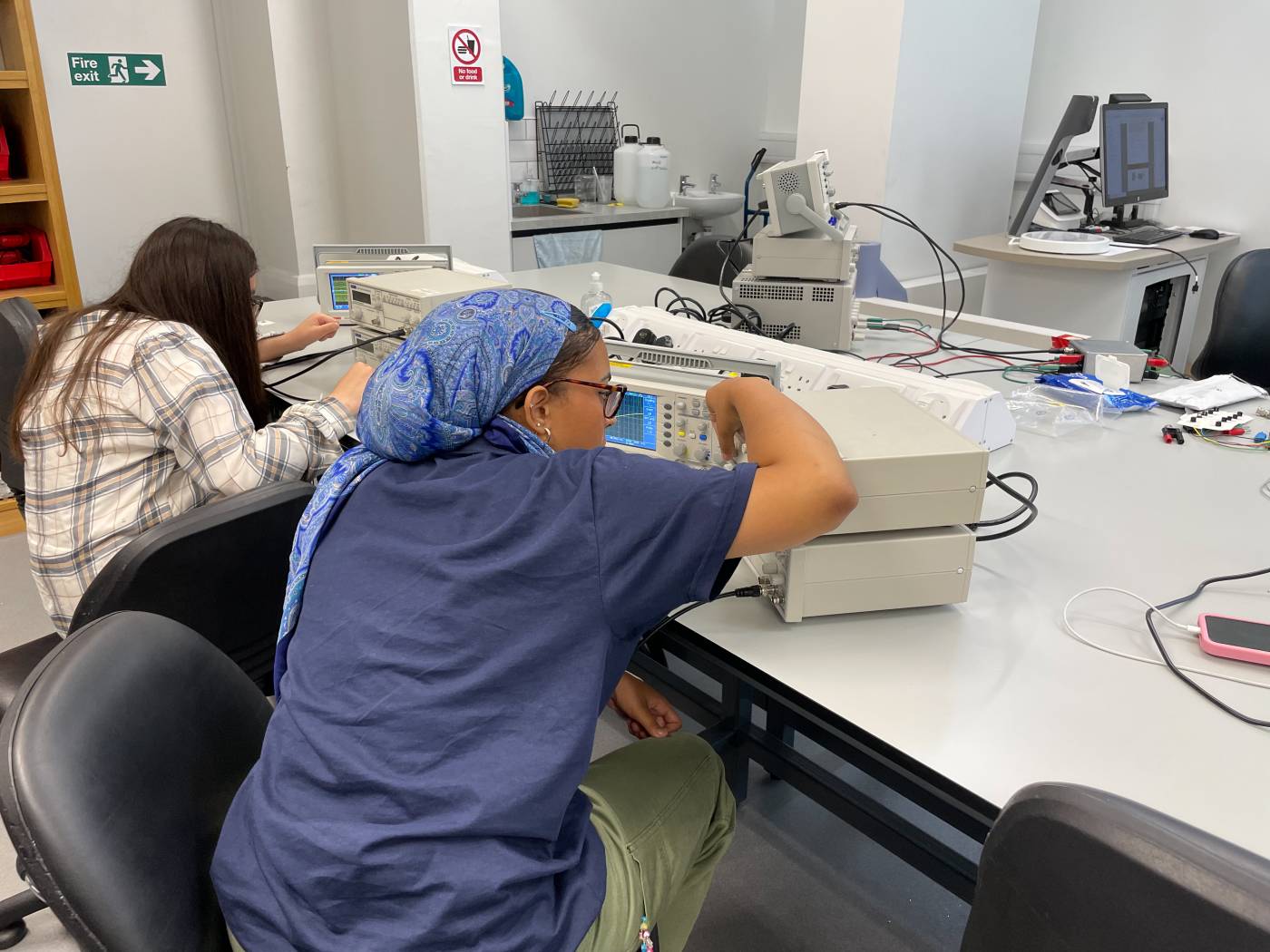
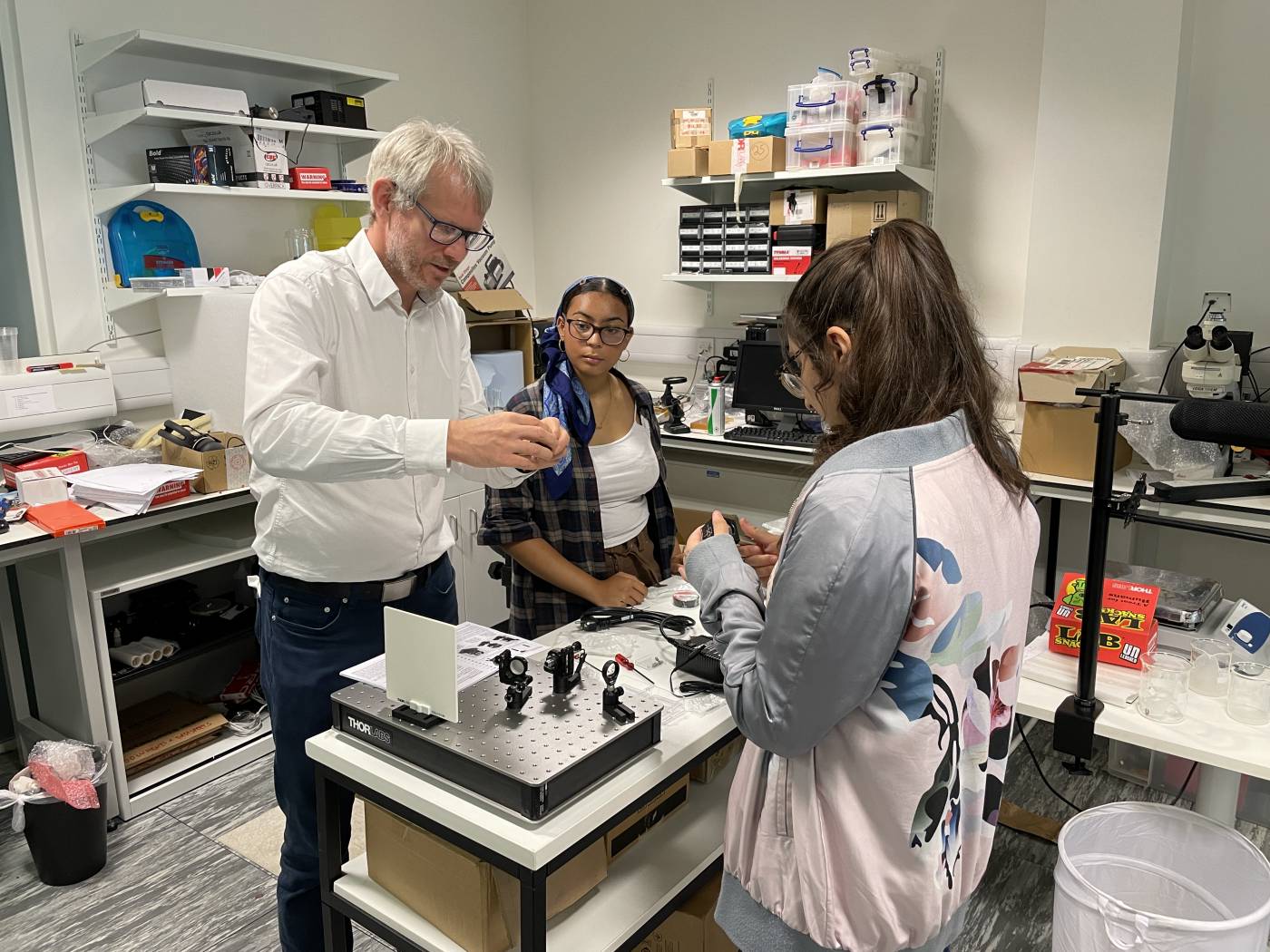
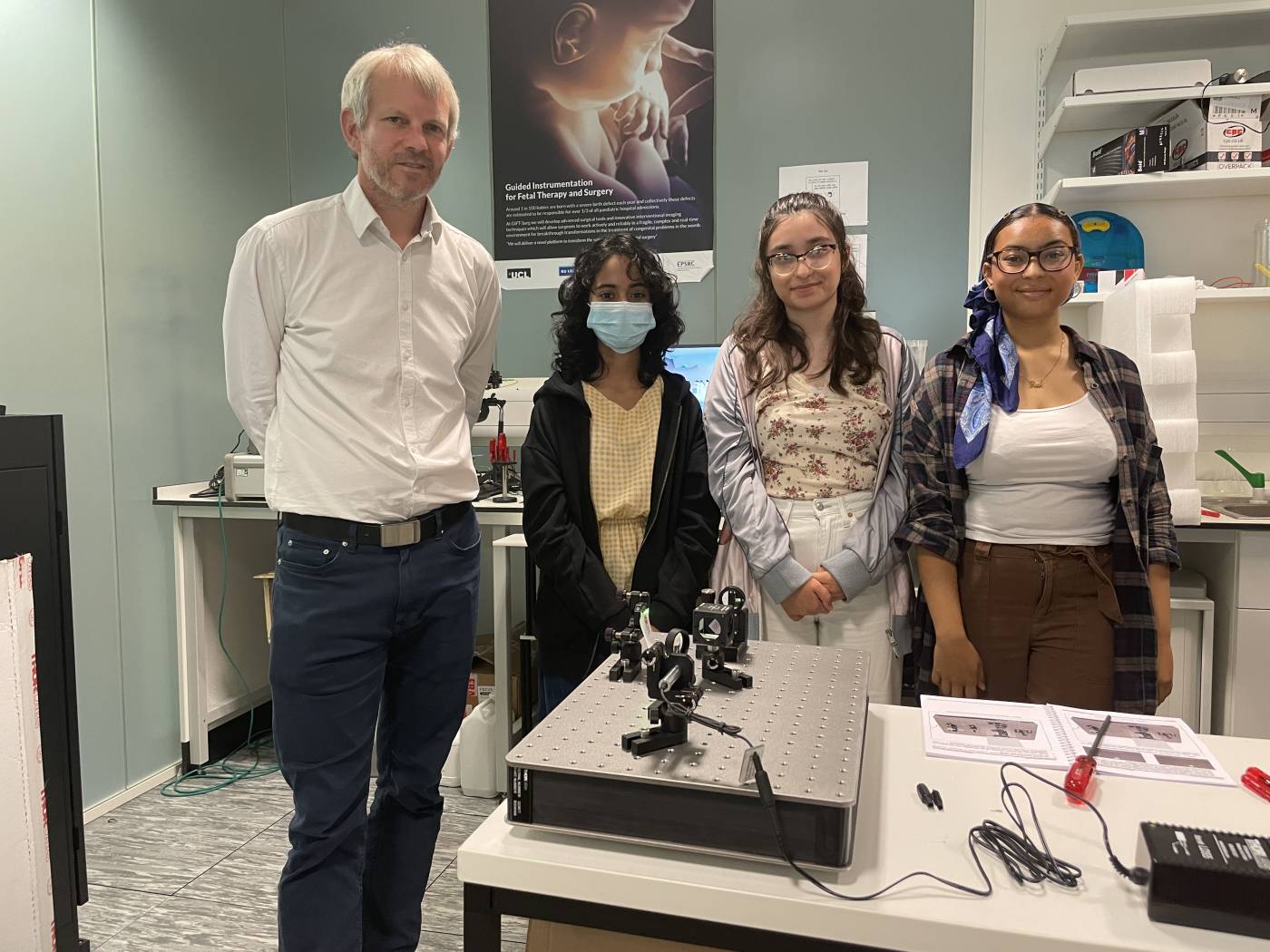
 Close
Close


